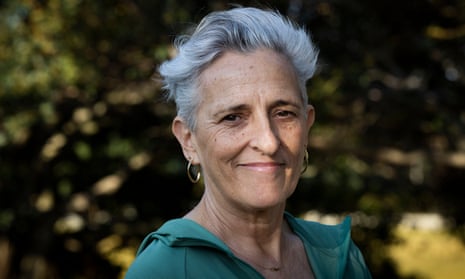

Although the Booker shortlist is revered, and always anticipated, it has, in the past, been sometimes a bit of a let-down, often featuring books that are filled with 21st century angst, that are just too long or obscure or unnecessarily dense. Quite often they offer nothing but a bleakness that surely we can do without. This year, though, I've loved them all and can't wait to tell you what each book is about. So far, in three posts, I've looked at the winner, which has greener-than-green credentials...Orbital by Samantha Harvey, the deepest and most poetic, Held by Anne Michaels, and the raunchiest, The Safekeep byYael Van Der Wouden. In this post I'm going to look at two more before I finally turn my attention to the only 'quite long' novel on the list.
James, by the long-acclaimed American author Percival Everett, who is back on the Booker shortlist after being there two years ago with The Trees, has written what I think is the funniest and most powerful novel on this list.
Stone Yard Devotional, by Australian writer Charlotte Wood, is also a book that made me smile. Maybe Wood didn't want her book to be thought of as 'comic' but it features, quite heavily, an infestation of mice in an isolated community of nuns, which decidedly raises more than one chuckle.
 |
| Percival Everett |
"Let's try some situational translations. You're walking down the street and you see Mrs Holiday's kitchen is on fire. She's standing in her yard, her back to the house, unaware. How do you tell her?"
"Fire, Fire," January said.
"Direct. And that's almost correct," I say.
"The youngest of them, lean and tall five-year-old Rachel, said, "Lawdy, missum. Looky dere."
"Perfect," I said. "Why is that correct?"
Lizzie raised her hand, "Because we must let the whites be the ones who name the trouble."
The reviewer Anna Bonet also loved this book; “Powerful” is an overused adjective when it comes to describing books, but it feels right here. In fact, James is more than that. At times, it is brutal to read – necessarily so, given that slavery is one of its primary subject matters – but it also manages to be light and funny and completely gripping. I could barely put it down.
 |
| Charlotte Wood |
Stone Yard Devotional has an unnamed narrator, who constantly surprises us. At the start of the novel she has abandoned her job and husband and, although not religious, decides to spend a short time in a rural Australian nunnery. The convent's routine of bells and service turns out to be just what she needs and she stays; a decision she never fully explains. As she moves through each day as a secular member of a convent, she reveals that she has uncomfortable memories of a girl in her class at school. This woman is now a famous nun, and is about to visit, bringing with her a corps the nuns wish to bury in their grounds.
The story quickly becomes surreal, almost oppressive, as we watch, fascinated, a dance of manners between the narrator, the charismatic Helen and the society of nuns. it takes a long time to get permission to give the corps a Christian burial, but meanwhile we witness the infestations of millions of mice being unceremoniously dumped into a deep hole in the ground.
Orlando Bird, in the Telegraph, says this of the book; Our narrator’s world is one of “dormant” truths waiting to be “released into the open at last”. Yet Stone Yard Devotional is all the more accomplished for resisting neat conclusions – “I don’t know why” is a familiar refrain – and recognising that even the examined life sits only “on the edge of comprehension”. Wood may not be the first artist to embrace uncertainties, mysteries and doubts, but at its best her novel does it beautifully.
It's a good read, but of the two, I will never forget James' journey up and down the Mississippi.
